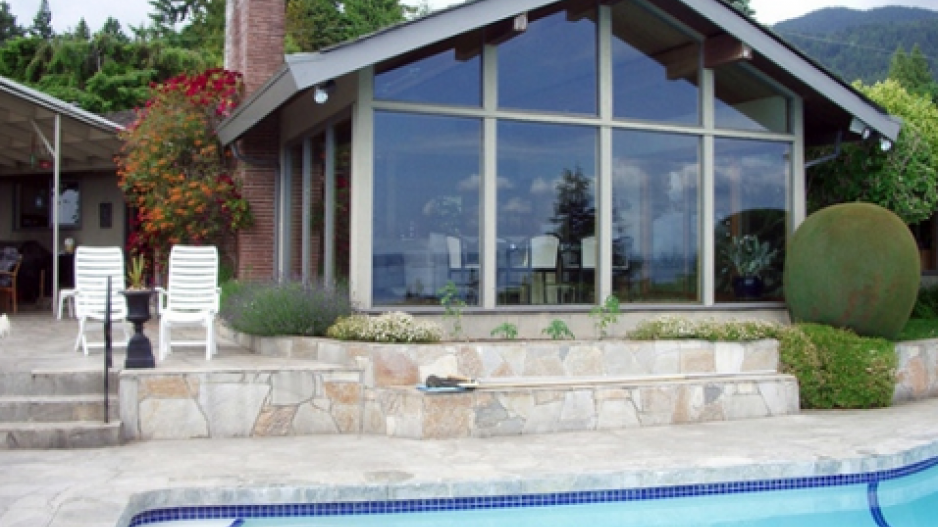Issues like foreign buyers and real estate flipping are at the forefront after a “teardown” home listed for $2.98 million in the Bayridge area of West Vancouver prompted a bidding war and eventually sold for $4.1 million to a buyer from mainland China.
The 60-year-old, four-bedroom home with a swimming pool at 4130 Burkehill Place had never been listed before, said Viv Harvey of Royal LePage Sussex, who represented the sellers in the deal.
“It’s a lovely little rancher,” she said. But that wasn’t what most of the real estate agents and prospective buyers who attended an open house last week were interested in.
“When you’re looking out from the lot, all you see is water,” she said. “There are no homes, there are no wires.
“It’s basically a teardown,” she said. “The value is in the lot.”
Harvey said at $2.98 million, the property was “sharply priced.”
“It probably was under the value,” she said. “That is the best way to make sure you get full exposure.”
Harvey said she expected the property to perhaps fetch as high as $3.5 million, but having it reach $4.1 million was a surprise.
Nine offers were made on the property — the lowest among them for the full asking price.
Harvey said having the house sell for $1.1 million over asking price is a first for her.
The buyer, from mainland China, already owns a home in the Lower Mainland, and plans to tear the existing home down and rebuild on the lot, said Harvey. He hasn’t decided if he’s going to live in the house or resell it, she added.
While a deal like this is still unusual, it’s indicative of what’s going on in high-end real estate markets like West Vancouver.
“It’s a market on steroids,” said Harvey. “The market has gone a little crazy.”
Increasingly the West Vancouver real estate market is attracting offshore buyers.
“With things escalating in the world, there’s a real need for people to put their money in a safe haven,” said Harvey. “Our dollar is so low that Canada is really on sale.”
Just how much real estate is being sold to foreign buyers isn’t clear, because it’s not well tracked by government statistics.
Harvey estimates about 15% of her business comes from overseas buyers.
Allan Angell of Angell Hasman, a West Vancouver real estate company that caters to the high end of the market, puts that figure higher. “I’m selling 80% of my high-end houses to Chinese,” he said.
Most see investment in real estate as a good way to bring money into the country, he said.
Others are making money by quickly flipping properties — sometimes assigning their contract of sale to a third party for a premium.
Those kinds of issues recently prompted Vancouver Mayor Gregor Robertson to call for a speculation tax on real estate.
Houses that sit empty until they are flipped is another issue garnering attention.
That can contribute to the problem of housing affordability by putting pressure on housing supply, said David Wachsmuth, an urban geographer at the University of British Columbia. “It exacerbates the whole affordability crisis the city faces,” he said.
It can also lead to problems because people who leave their homes empty aren’t participating in the community, he said.
West Vancouver Mayor Michael Smith said he’d support measures like a higher tax rate for homes that aren’t used as a principal residence — a practice common in other parts of the world.
“We hear that people are buying houses and they’re not renting them out,” he said. “That does not create a neighbourhood and does not create a community.”
Money made by quickly flipping real estate should also be taxed as business income, said Smith.
“There’s too much of an incentive right now for people buying houses and flipping them.
“I don’t personally believe in speculating in houses. It’s a house. It’s a place to raise your family.”
But Smith said any such measures would need approval from the province, something that hasn’t happened yet.
Angell said if it wanted to preserve affordability, the government should have brought in those kinds of measures before the market exploded. “By the time they bring this in, the market will have changed,” he said.
Wachsmuth said the issue isn’t about where buyers are coming from, but what they’re doing with the properties.
“The housing market’s a weird thing,” he said. “Houses are simultaneously a possible investment and a human necessity. Because they are both of these things at the same time, you can get some really tough situations. Vancouver’s in the face of one of those right now.”




